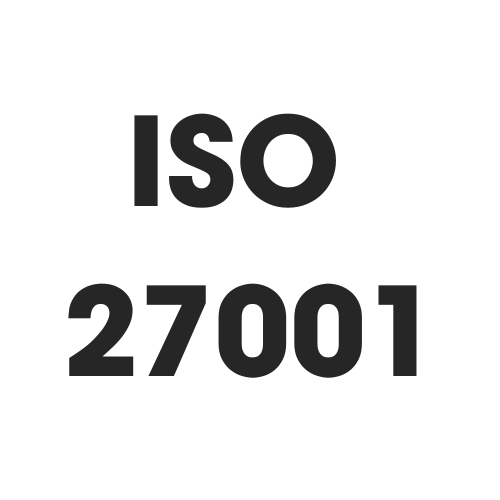Celebrating the new approaches used by our NHS partners to improve MSK healthcare
In a challenging climate, three NHS organisations are harnessing the power of health innovation to improve MSK services
Three partnerships setting a precedent for innovative solutions
EQL is on a mission to improve efficiencies in healthcare through the power of technology and innovation — enabling people to access the right care pathway faster and empowering people to take control of their own healthcare needs.
The number of people on the waiting list for physiotherapy is said to be over 300,000, with those in some areas waiting 36 weeks for treatment following their referral. Another 6 million are waiting for procedures such as hip and knee replacements.
Our NHS partners are working incredibly hard, with staff making a huge collective effort — tackling the COVID-19 backlog alongside addressing additional demand with severe staff shortages and funding pinch points.
In these circumstances, the potential is obvious for technology to help address the backlog, cut wait times and improve patient flow.
Approaching healthcare with an innovation mindset
We are working directly with several NHS organisations that even in an environment of incredible strain, are outstanding examples of how approaching healthcare with an innovation mindset and embracing technology across various stages of the healthcare pathway, drives better outcomes, improves efficiency and transforms services.
All three have employed Phio, our end-to-end digital solution providing remote access to a digital assessment and supported self-management.
Phio ensures people are signposted to the right care pathway first time, based on their clinical need and preference, while our clinically supported digital self-management solution, accessible via the triage support tool allows people to access an exercise programme tailored to their condition with in-app access to clinicians who are able to closely monitor and track their progress.
A speedier way for patients to access services

NHS Highlands, one of the largest health boards in Scotland serving a population of 320,000, partnered with EQL to support some of those on their MSK physiotherapy outpatient waiting list. Phio offers patients a way to access advice, support and information to prevent their conditions from worsening, to escalate concerns or to help self-manage their conditions whilst they wait for a face-to-face appointment.
Derek Laidler, Professional Lead Physiotherapist, NHS Highlands said:
“When we accept a referral into an NHS physiotherapy service we accept a duty of care for that patient. If for whatever reason we are unable to discharge that duty of care in a timely manner by providing access to our services within an acceptable timeframe then it is vital that we have an option to support those waiting longer than we would like. Phio has provided this option.”
Providing instant and simultaneous access to Phio means people are assessed, signposted and stratified according to clinical need, to the most appropriate care pathway. This means that patients whose condition may have deteriorated whilst they were waiting can be identified, while those with an MSK injury that is clinically suitable for Phio’s personalised and clinically supported exercise programme can begin their care immediately.
Patients who choose, or who are clinically assessed as still needing, an in-person physiotherapy pathway are also supported by being provided with access to Phio’s exercise programme to help them to manage their symptoms and avoid their injury worsening while waiting for an appointment.
A proportion of patients engaging with Phio will no longer need an appointment after following Phio’s programme, but for those who do, they benefit from a substantially reduced wait time as up to 80% of people opt to use Phio, thereby shortening the wait list.
“Phio has undoubtedly reduced our waiting list, either by patients being prompted to let us know they no longer need treatment or by recovering using the supported self management offered in Phio engage,” added Derek Laidler.
The partnership is a front runner within physiotherapy services in supporting the NHS Waiting Well initiative, which promotes the use of technology to identify high-risk patients on waiting lists. Using Phio enables NHS Highlands to support patients on the waiting list and offer them tailored pathways to help achieve the best-possible health outcomes, faster.
Phio allows people to be given a choice in tailoring their own pathway to their preference and need, offering them information and support to help inform their decisions as to which treatment is the most appropriate for them.

Phio has undoubtedly reduced our waiting list, either by patients being prompted to let us know they no longer need treatment or by recovering using the supported self-management offered in Phio engage

Partnership shapes brighter future for MSK care
Our collaboration with Homerton Healthcare NHS Foundation Trust is enhancing patient care by transforming access to physiotherapy services for patients with MSK conditions.
Phio has been developed to fit City and Hackney local pathways — the highly customised decision tree has been configured to sit at the front end of Homerton’s primary care service. It acts as a self-referral mechanism, helping to streamline the referral process and signpost patients into the most appropriate care pathway according to their needs.
While patients benefit from improved access and convenience, taking control of their own healthcare journey by initiating the referral process themselves, GPs benefit from reduced administration, allowing more time to focus on complex cases.
Elizabeth Slee, Deputy Service Lead for Locomotor Service and Project Lead for MSK Direct said:
“By addressing challenges, streamlining processes and empowering patients, our collaboration with EQL has allowed us to meet the previously unmet need of MSK self-referral. The data collection has provided insights into our populations health needs, allowing us to make futher iterative improvements in patient care. The long term benefits could include better resource allocation and potential cost savings resulting from a reduction in unnecessary GP and FCP appointments and timely interventions.”
Managing patient flow

Sandwell & West Birmingham NHS Trust, one of the largest NHS teaching trusts in England, set in one of the most deprived areas in the country with a very diverse patient population, launched a pilot with Phio.
When Phio was first implemented, the trust had simplified its self-referral process to ease pressure on primary care during the pandemic. This process of clinical telephone triage however was not sustainable moving back to a model of face to face care and pressure on admin meant that previous admin-led telephone scripts were also not a practical solution.
Introducing Phio offered, 24/7 access to self-referral for the local population, immediate supported self-management for appropriate patients, and standardised triage for GP referrals. It ensured people were put onto the right care pathway first time, improving efficiency, equity, and patient flow.
As a result of using Phio, the MSK service has; improved access to care, managed clinical risk rapidly in a standardised and consistent way, been able to release clinical time back to delivering face to face care helping to reduce waiting times, and taken pressure off admin teams through offering referral online.
Carolyn Casey, Consultant Physiotherapist for Sandwell & West Birmingham NHS Trust said:
“ Prior to going live our waiting lists were steadily escalating and triage decisions were not consistent. Ahead of the rollout of Phio, we conducted a waiting list initiative to ensure we met current guidance for MSK community service restoration, and since going live we have kept within this guidance. Phio has supported us to manage patient flow, with live dashboards helping us to continually monitor demand, and digital pathways offering patients convenient alternatives to standard care.”
Do you need help developing a business case?
By offering standardised configurations that are unrestrictive and ensure appropriate referral, the use of Phio is also helping these organisations to align with the Getting it Right First Time (GIRFT) approach.
EQL often supports partners to develop a business case which helps to get a pilot launched and demonstrate success which enables the release of cash or finance for a roll out of the service.

.png)











.png)




.png)